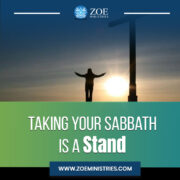The Pilgrimage of Moses to Freedom
“For to be free is not merely to cast off one’s chains, but to live in a way that respects and enhances the freedom of others.
Nelson Mandela
POWER TRUTH
For freedom, Christ has set us free. Stand firm, therefore, and do not submit again to a yoke of slavery.
Galatians 5:1 NRSV
Moses is famous in Judaism, Christianity, and Islam, so many of us know his story. For discussion’s sake, though, and especially in the context of Prophetic Pilgrimages, it would be good to review the Exodus in a general way.
The Book of Exodus says that Moses was born at a time when his people, the Israelites, who were a small group of slaves, were growing in number, and the Egyptian Pharaoh was worried that they might join with Egypt’s enemies. No one cared about Joseph’s actions to save Egypt from the great famine. When the Pharaoh told all newborn Hebrew boys to be killed, Moses’ Hebrew mother, Jochebed, hid him. He did this because the Pharaoh wanted to reduce the number of Israelites.
Through the Pharaoh’s daughter, who the Midrash calls Queen Bithia, the child was taken in after being found in the Nile river and raised as part of the Egyptian royal family. She named the baby Moses, which means “drawn out of the water” in Hebrew and “son” in Egyptian. This was the first step in God’s plan to end 400 years of slavery for these people. Moses grew up in the palace of the pharaoh. There, he learned to read and write, which prepared him to write the first five books of the Bible. Even though he was happy in the palace, he longed to see his own people as he got older. When he saw an Egyptian overseer beating a Hebrew slave, he hit the Egyptian and killed him.
The Start of Moses’ Journey
When the pharaoh found out that Moses had killed the man, he ordered to have Moses killed. Moses ran across the Red Sea to the land of Midian. When he got there, he found seven daughters coming to a well to get water for their father’s flock. Shepherds tried to get them to leave, but Moses stood up for them. After his daughters told him what had happened, he invited Moses to dinner and married off his daughter Zipporah. They had a son, and they named him Gershom, which means “stranger in a foreign land.” Moses became a shepherd in Midian.
One day, as he was taking care of his sheep on Mount Horeb, he met the Angel of the Lord, who spoke to him from a burning bush (which he regarded as the Mountain of God). He told Moses to go back to Egypt and lead his people there. Moses asked God, “Who am I that I should go to Pharaoh and get the Israelites out of Egypt?” God replied, “I AM what I AM. “I AM has sent me to you,” tell the Israelites.
Going Back to Egypt
God told Moses to return to Egypt and ask for the Israelites to be freed from slavery. Moses said he couldn’t speak well, so God gave Moses’s brother Aaron the job of speaking for him. He returned to Egypt to do what God told him to do, but God made the Pharaoh say no. The Pharaoh finally gave in after God sent ten plagues to Egypt. Moreover, Moses led the Israelites to the border of Egypt, but once they were there, God hardened the Pharaoh’s heart again so that he could destroy the Pharaoh and his army at the Red Sea Crossing as a sign of his power to Israel and the rest of the world.
No one in Pharaoh’s army made it out alive. When the Israelites saw the dead Egyptian soldiers on the beach and saw how powerful the Lord was against Egypt, they feared the Lord. They had faith in God and in Moses, who was his servant.
The Longest Journey
Finally, after Moses led the Israelites to victory over the Amalekites, who were thought to be the descendants of Esau, Jacob’s brother, Moses led the Israelites on the Exodus, a forty-year journey to freedom. This was to be the end of Abraham’s long journey to the Promised Land, which had begun many years before. During the Exodus, the Lord made it clear that He was the God of the Israelites. He said, “I will make you my own people, and I will be your God.” Then you will know that I am your God, the Lord, who saved you from slavery in Egypt.”
Invitation
Your weekly dose of prophetic wisdom and anointing awaits you. Join our LIVE Conference Call!
1) Call 515-604-9266
2) Go to startmeeting.com, and use the login: BishopJordan


























